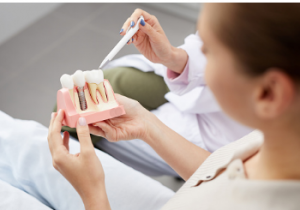You may be wondering whether dental implants are right for you. It would help if you discussed any health conditions with your dentist before making any decisions. There are also many factors to consider, such as cost, recovery time, and bone grafts. Read on to learn more. Here are a few things to know before getting dental implants:
 Health issues to discuss with your dentist
Health issues to discuss with your dentist
Before getting dental implants SA, you should discuss your health history with your dentist. They should take an X-ray to determine your bone density, and you should also ask if your dentist will use a computer model to plan your surgery. Your dentist will also need to take an impression of your mouth. It is a crucial step to get the best results. In addition, you should be aware of any other health issues that may affect the success of the surgery.
If you have any health conditions or medications, you should discuss them with your dentist before getting dental implants. Your dentist needs to know if your body will accept the implant. For example, uncontrolled diabetes or osteoporosis increases the risk of implant failure. Ensure you communicate these conditions with your dentist and medical provider to avoid complications. The doctor can work with your insurance company to make the appropriate arrangements. It’s essential to consult with your primary care physician if you’re on any medications.
Cost
The cost of dental implants varies widely. Single implants can cost anywhere from $1,500 to $2,800, and multiple implants can cost upwards of $5,800. The cost of these procedures depends on the type of dental implant and the number of teeth needed. The dentist may also charge for an X-ray or a CT scan, ranging from $250 to $1,100. In addition, the cost of an office visit may also be included.
Dental implants are considered a high-quality medical device that replaces a missing tooth. Although dental implants cost a significant amount, they are a worthwhile investment for many people. With a quality dental implant, you can enjoy a permanent smile that’s both beautiful and functional. Medicare or Medicaid does not cover implants but can be covered by dental insurance. You can save as much as 50% on dental implants if you qualify for dental insurance. However, you must undergo a 12-month waiting period before receiving coverage.
Recovery time
Depending on the procedure performed, your body’s ability to heal, and each patient’s individual needs, the recovery time for dental implants can vary. However, most patients can return to regular routines within a few days. You will likely need to stay on a soft diet for a few days. The implant post will need to fuse with the surrounding bone in the jaw to become strong enough to hold a replacement tooth.
After undergoing surgery, you can expect a period of mild to moderate soreness. In the worst case, you will have significant pain, but it is manageable with the help of prescription medications. If the pain is too severe, contact your implant dentist. A typical recovery time for dental implants is about 3 to four months. A full recovery time may take longer, but it should not last more than a couple of weeks.
Bone grafts
Bone grafts are required for many patients to receive dental implants SA. The procedure can be excruciating, and patients may take blood thinners before the procedure. A local anesthetic will be given before the procedure, and a doctor will clean the area and apply a membrane to the gum. The graft material is then placed in the appropriate area of the jawbone, and the incision is closed with stitches.
After the procedure, patients will be given pain medication and antibiotics to help prevent infection. A small incision is made in the gum tissue, and they may also be prescribed pain medications. After a few weeks, soreness may be present, but it should subside over time. The jaw will need to mature for a few months, and dental implants can be placed once it is strong enough.
Infections at the implant site
Infections at the implant site can be challenging to treat, but a combination of remedies may work for the afflicted patient. First, an X-ray will determine the level of bone loss around the implant. Then, periodontal probing will assess the severity of the infection. Treatment options will depend on the type of infection, how much bone is being lost, and the cosmetic impact of the infected tooth.